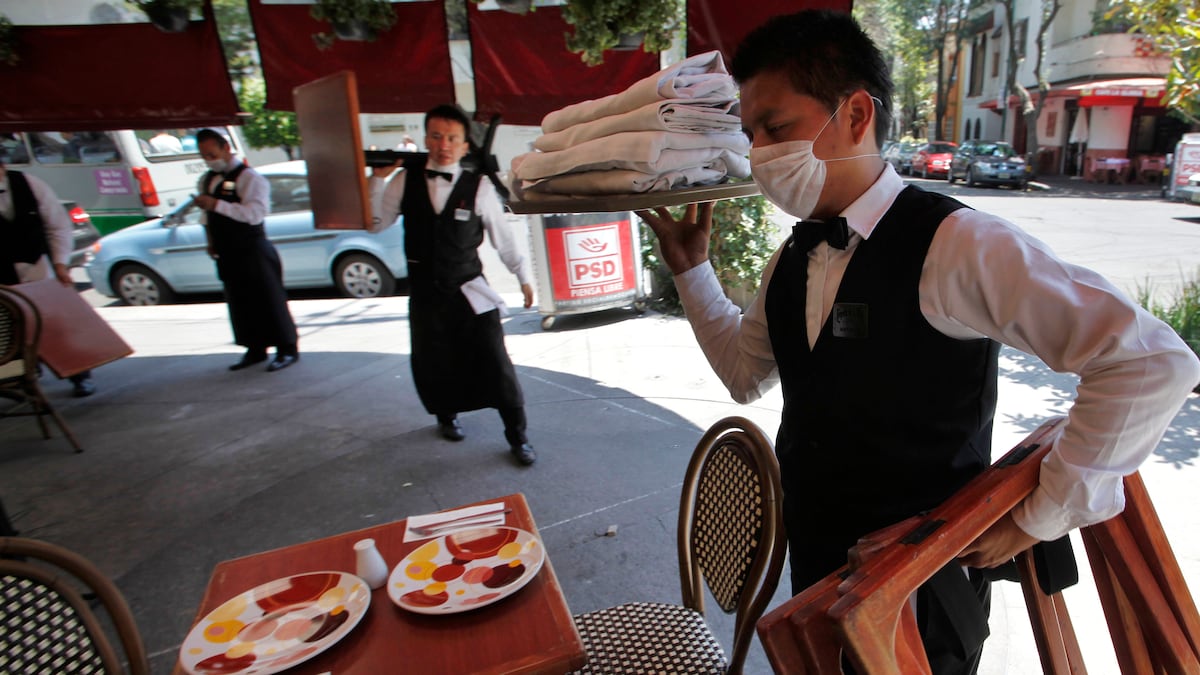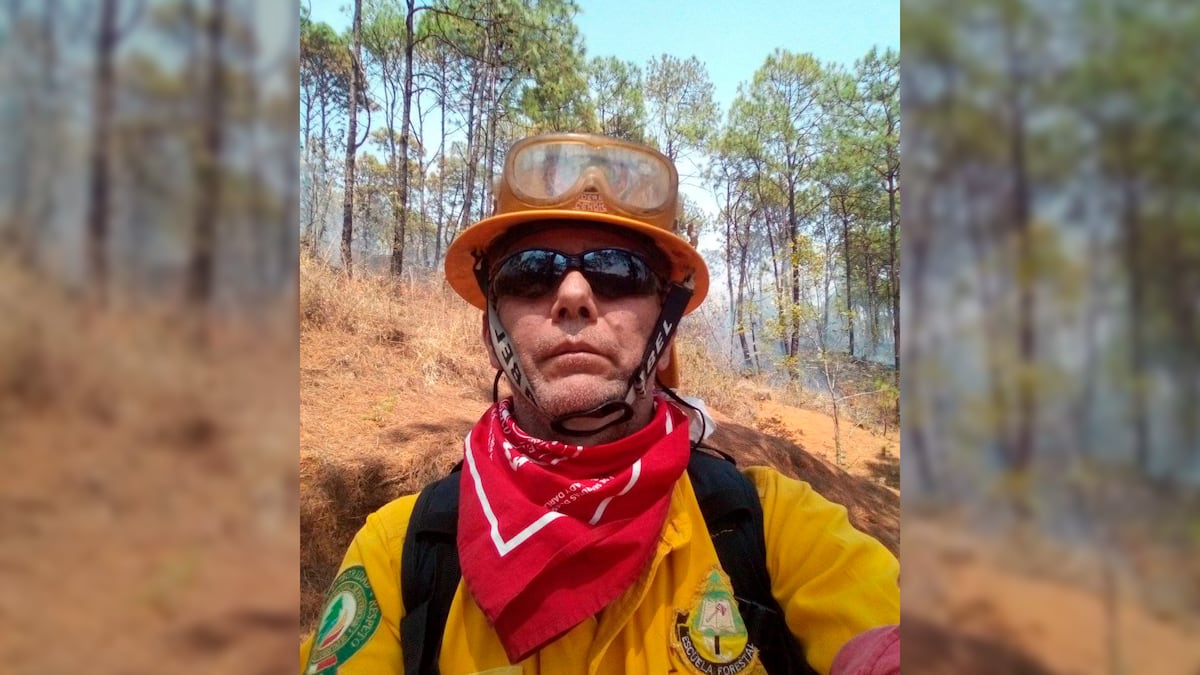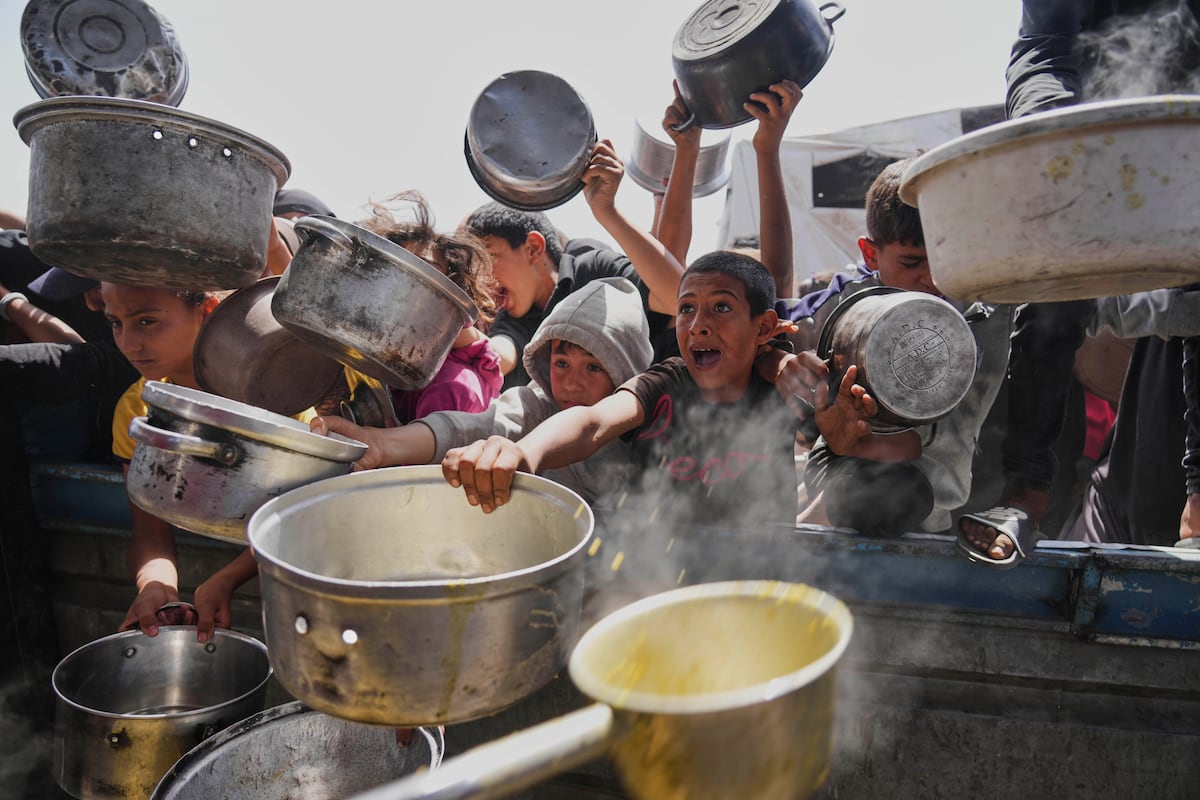“My story is different from most of the ones you’ve heard. Firstly, because 1.5 million Jewish children were murdered in the Holocaust and I survived. Most of those who survived did so by hiding in Christian homes, monasteries, convents, forests… I didn’t. I was in a ghetto, a labor camp and several concentration camps. I had a terrible childhood, up until I was 10. After that, I had a wonderful life.”
This isn’t an excerpt from an autobiography, a video, or a lecture. Rather, it’s the living voice of Rena Quint. She’s part of the dwindling group of survivors of the Nazi genocide who can still share their experience with future generations. Last week, Israel remembered them.
This past January marked the 80th anniversary of the liberation of Auschwitz, which was the largest extermination camp and a symbol of the Holocaust. A study released on April 22 by the Claims Conference — which represents the compensation rights of Jewish victims of Nazism — estimates that the voices of 70% of the more than 200,000 survivors from this community will be silenced forever in the next decade. More than 1,400 of the survivors are over 100-years-old, while the average age is 87.
Quint is two years older, but she displays the typical energy of someone who values life greatly because she came so close to losing it. This is evident as she shares her memories with a dozen people sitting around the living room table of her home in Jerusalem. The walls are filled with paintings, letters and photos of the large family she ended up building, after losing her entire family as a child in the Nazi camps.
Her autobiography is titled A Daughter Of Many Mothers (2017). This is because one of the constants in her early life is how she lost one mother after another, all the way up until her final adoption in the United States at the age of 10. She has also had several names. Rena Quint was born Freida Lichtenstein in 1935, in Piotrków Trybunalski, a town in Poland that had a large Jewish community (10,000 people, representing about a fifth of the population) before World War II.
The town synagogue was ultimately converted into a library. This was because — as the mayor admitted, in 1989, when Rena visited the site for the first (and last) time — there wasn’t a single Jew left to pray there.
Quint was almost four-years-old when World War II broke out. The Nazis entered Piotrków Trybunalski and created the first of the ghettos in Poland that are now part of world history. That year, the country had 3.3 million Jews. Six years later, only 300,000 remained.
While in Poland in 1989, Quint obtained the birth certificates of her two older brothers, David and Yossi. She saw them — and her mother — for the last time at the age of six, inside the synagogue where the Nazis had forcibly confined hundreds of Jews and began shooting. Her mother and brothers — like half of the ghetto’s inhabitants — ended up in the infamous Treblinka extermination camp.
Here, memory seems to merge between what she would have liked to have happened and what probably actually happened. “A man shouted at me: ‘Run, run!’ I grabbed my mother’s hand. What would a six-year-old do, scared, surrounded by bullets, watching people fall dead? I imagine grabbing her skirt. And what would she do? Hold me. But I don’t know what happened. Maybe I was brave, maybe I was stupid, but I ran.”
In any case, it was her safe passage to a second life. She ended up hiding her gender to survive. She was taken with her father to the glass factory where he worked under the Nazi occupation, where only boys over the age of 10 were admitted. Her father told her what she had to internalize from then on: “You’re no longer a girl, but a boy. You’re not six years old: you’re 10. And your name is no longer Fedya, but Froyim. Froyim. Repeat after me.”
The lie endured amidst the overcrowding and the smoke from the factories. But it wouldn’t have survived the first thing the Nazis did to those arriving at the concentration camps: separating men from women and children and stripping them naked. Her father understood this as they approached a concentration camp in Poland in a cattle car.
He entrusted his daughter to a schoolteacher and said goodbye, leaving her with a photograph and a promise. The picture showed the two parents and the three children. Of the five, she was the only one who survived. “‘Look at [this photo],’ he told me. ‘The war is going to end. You can already see the Allies approaching. I promise we’ll see each other again, in our village.’ A father is supposed to keep his promises. My father didn’t.”
He ended up murdered at Buchenwald. And she doesn’t have the photo he gave her, because a Nazi soldier tore it apart. “He saw me hiding something in my hand and thought it was a diamond. Maybe a watch or money… he took it from me and ripped it up. It was very important to me; to him, it was garbage.”
When her father was taken to Buchenwald, she was left alone and eventually sent to another concentration camp: Bergen-Belsen, located in Germany and controlled by the SS. There, she experienced a chilling moment that she recounts with distance, as if she had been more of a spectator than a protagonist.
In the last weeks of the camp’s existence, “hundreds of people were dying of hunger, disease, cold, whatever” and “the women would take [a dead person’s] blanket, then take the body and dump it anywhere along the vast plain of Bergen-Belsen.”
“Wherever you went, you saw and smelled death,” she recalls. “I don’t know if you’ve ever been acquainted with that smell.”
One day, she continues, she was very ill with typhus and diphtheria, unable to stand. Someone (“I don’t know who,” she clarifies) must have thought she was already dead — or had only a few hours left — so they placed her with the corpses. “I imagine they thought: ‘Anyways, everyone is going to die.’”
But not her. She reads an excerpt from her autobiography to describe her memory of April 15, 1945, when the British forces liberated Bergen-Belsen and found tens of thousands of bodies: “Men and women who never walk faster than a shuffle are running. I want to see where they are going, but I can’t stand up. I’m sick. People who never talk louder than a whisper are shouting. Soldiers in khaki uniforms are walking nearby. I can tell these aren’t German soldiers by the way the prisoners greet them with shouts of joy. How strange. Some of the soldiers are throwing up. Nazi soldiers never throw up. ‘Ihr seid frei — you are free,’ are words on the loudspeaker. ‘We are the English Army. Be calm. Food and medical help are on the way.’ ‘Frei, Frei – We are free,’ women shout around me, in Yiddish. What does ‘fre’” mean? I do not understand. I am too sick and tired to move — I want my mother.»
She knows that she had typhus and diphtheria that day: the diseases appeared on a medical test that she took a few weeks later, in Sweden. Through the Red Cross, the Scandinavian country welcomed hundreds of displaced people from devastated Europe. People were just beginning to understand the scale of the Holocaust and wake up from a six-year-long nightmare.
Because of how young she was at the time — and also because of the intricate paths taken by memory — Quint has few recollections of those moments. Still, however, she retains sensations and images. “What you never forget are the smells and the freezing cold,” she emphasizes. “Even today, sometimes a cold wind comes and — even if I’m bundled up — it brings me back there. Or I go to a restaurant and, since I have a walker, they take me through the kitchen: there’s garbage and I can smell it. It’s the smell of soup in Bergen-Belsen.”
In Sweden, it was Christmas when a young couple approached her with “a doll whose eyes opened” and “a piece of candy” and asked her if she would become their daughter. At the time, the German-Jewish family was waiting their turn to settle in the United States when one of their daughters of the same age died — just like many thousands of Jews after the liberation of the camps — from suddenly eating too much food after being starved, or from the various health conditions they suffered from. They also suggested using her documents (which were not easy to obtain) to pass herself off as “Fanny.” Another name change. She had to accept that she was now Fanny and that she was not born in Poland, but in Germany, on February 15, 1936.
Once she was in the United States, the other children were amused by this stranger who didn’t know English words like “house,” “spoon,” or “car.” One day, as she was becoming “a typical American girl,” the neighbors appeared with sad faces and took her to a place she had never been to — a cemetery — to bury their mother, who had been suffering from an illness.
“There was a pit, a coffin. I had no idea what it was. Everyone was crying, except for me. Maybe I didn’t know how to cry in the first place. Why would I have cried in Bergen-Belsen? Because I was hungry? Everyone was hungry. Thirst? Cold? Everyone was thirsty and cold. And besides, what could they do for you? So, you learned not to cry. I also didn’t know that you’re supposed to cry when someone dies. In Bergen-Belsen, if someone died, they just took the body and threw it away.”
She says that those charged with her care were unsure about what to do with her. They took her to spend Shabbat dinner with a childless Jewish couple. She recalls how her fear of being disliked and ending up abandoned on the streets outweighed her fear of their German Shepherd, reminiscent of the dogs the Nazis used in the ghetto. “At the end of the Sabbath — instead of sending me back — they asked me: Do you want to stay and be our daughter? This time, I had a mother, a father, a dog, a bed and a room of my own. I was a princess.”
In 1984, she made aliyah — the Hebrew term for settling in Israel if you have at least one Jewish grandparent, which automatically entitles you to citizenship — with her husband and four children. Today, she proudly says, she has 22 grandchildren and 56 great-grandchildren. She doesn’t need to explain why she values family so much.
Sign up for our weekly newsletter to get more English-language news coverage from EL PAÍS USA Edition






Comentarios